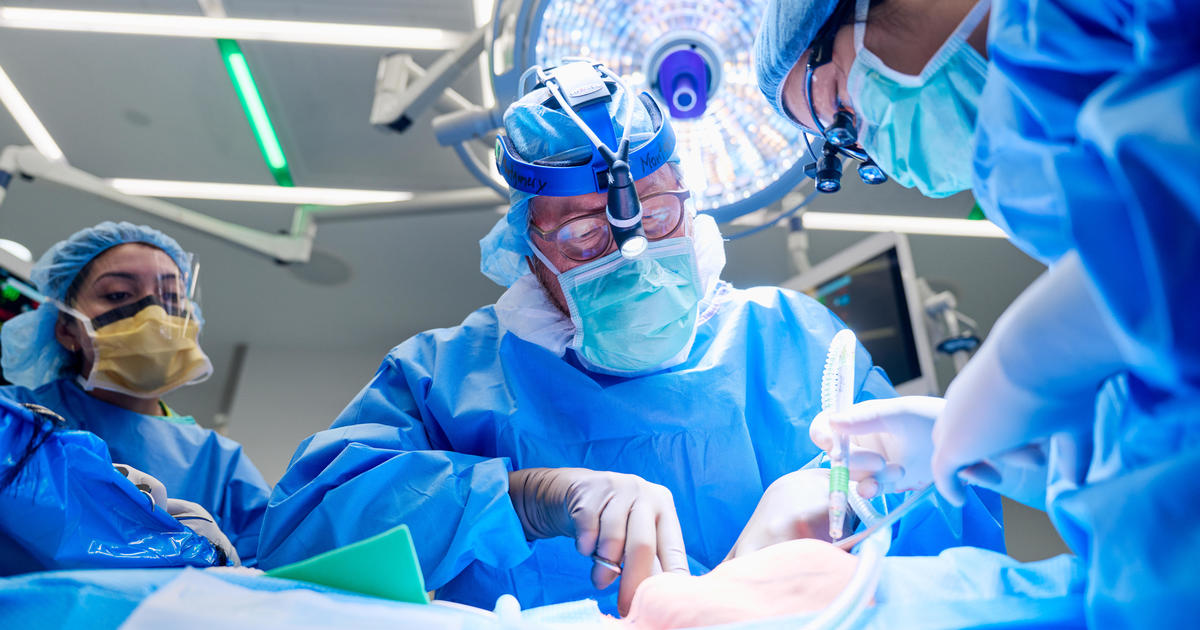"The Dinner" director Oren Moverman on the moral questions of parenting
Oren Moverman's new movie "The Dinner" features Richard Gere, Rebecca Hall, Steve Coogan and Laura Linney sharing a beautiful, sumptuous meal together -- but behind the decadent feast lies something far darker.
The two couples are navigating a shocking event involving their children and something unconscionable they did. The film asks how far the parents are willing to go to protect their children.
Moverman talked to CBS News about the film, the food and what he would do as a parent in a similar situation.
The marketing for this movie emphasizes the food, but it's really about the people and even more about their children.
There's always a temptation to overemphasize what the food is and pump in large metaphors about relationships and all that or just make it a food orgy, but for me it felt like the movie is so loaded with all these scenes and ideas that the actual meal is actually about the relationships around that table.
You're juggling a few different elements here -- the backstory, the current narrative and the dinner itself. How did you plan it in a way that one would not overtake another?
I actually didn't. I planned it in a way that one could overtake another. There's so much going on at any given time and so many layers to any relationship that there's really no way to separate them, so if you're making a movie about over-the-top restaurant food that's quite exquisite and hate, crime, white privilege, mental health -- the list is so long, but you ultimately create layers of narrative that work together.
The visuals of the food are incredibly beautiful. How did you plan dishes that accurately represented an haute cuisine experience?
Well, we had help. Plenty of help. I took cues from the book when I started the adaptation, and the book is a very specific food menu that is true to the Dutch restaurant where it was taking place but also a very '90s menu. We hired two wonderful chefs who came in with a beautiful plan on the structure of the meal and what to present to the diners that would actually reflect upon what the movie was about.
There was a kind of mystery to what happened that night and the politics of the family and in order to deal with that, there were ideas of shells -- things to open up and reveal inside. They also talk about food that has an idea of youth and parenting so there was a dish that had yolk and guinea hen -- combining different generations into one plate. They were playful that way and it was inspiring.
Did you yourself have a vision on how this dinner would look?
I didn't have one specific vision. It was sort of a combination of a bunch of different restaurants -- but they shall remain nameless. What we tried to do is create a restaurant that's absurd and over the top but could be realistic. I've had plenty of people ask where it is, but the restaurant is in an empty mansion in Yonkers that we kind of filled. I tend to get carried away so I thought of this restaurant as a brainchild of a very eccentric French guy -- lots of old money, definitely has an appreciation for food and wants to curate a food menu and art on the wall and music in every room. It's an obsessive restaurant with everything perfect, so that was the fun part of the story -- taking cues from the book to be playful and make fun of it but also have an appreciation for it.
What attracted you to adapt and make the film?
In a word, Cate Blanchett. She wanted to direct a movie and chose this book as something she could direct and she wanted me to adapt it for her, and as much as I like the book and wanted to create something, my first impulse was, "Cate Blanchett is calling. I'm going to answer."
The book was so popular and it's rare to do something so extreme but also a source that's been proven to work, so for me that was very attractive. Once I was handed over directing duty, certain themes interested me but this thing was so rich just in terms of substance.
Are you a parent?
I am a parent. I have a 22-year-old daughter and a son who's about to turn 19.
Do you sympathize with these parents, whose children have done something awful?
I really struggled with it. I think one of the things that worked so well with the book and movie is it asks an impossible question because in theory, you can sort of say, "Well, I would take this side or do this for my child or cover it up or make them live with the consequences" and then go into the next layer.
How did we get here? Why are the kids like this? Is it a genetic thing? You just go down the rabbit hole in this kind of polemic, and I would say hopefully no one ever needs to feel this dilemma but it's a really interesting one when you start talking about it in theory. What would you do if your son or daughter did something quite horrible, a crime, and you had the power to shape their future? What would you do? I love the argument that came out of the book and movie. Everyone takes a side. Very few people say, "I don't know."
So then, what would you do?
I honestly go back and forth. I see what's valid about each side. I think I'd like to tell myself my kids would not find themselves in this situation and if they did it would be an accident instead of what these guys did. It was a sadistic, kind of psychopathic moment. I want to tell myself that, but life is much more complicated than that. I hope we did enough of a good job to be lucky enough to prevent them from these situations, but if it happened, probably my impulse would be to find a way to protect them.
You mentioned earlier -- there's a lot of racial tension in this movie because one of the boys -- not the perpetrators -- is black and adopted. Did you add that in when you adapted the book?
Some of it was in the book. There was an African kid adopted by a politician's family. That was definitely in the book. There was some tension around that, but I think once you put it in an American context and bring in the Civil War and certain kinds of tension around race, it takes on a whole other meaning. I like that and as much as I was intrigued when John McCain was running for president and people were using his adopted girl as propaganda against him, it felt like there's a tension for it that can be very specifically American in what it means to bring racial tension to such an aristocratic white family.
The movie ends with lots of unanswered questions. Did you at any point think about tying up the ending in a neat bow?
No, not really because the movie starts with a voiceover and kind of a rant Steve Coogan's character goes through. He goes through the ages -- the Renaissance, the modern age, "just look at us" -- and the whole movie is like that: Just look at us and what we've become.
It's not going to end neatly. It's not going to tie up in a bow. It's going to be abrupt and painful, and the movie ends that way and I couldn't imagine a neat way of doing it. Even the book kind of becomes something else in the end. We hear Bo's gone and there's a certain violent attack that I didn't really think made sense in the context of the movie but it ends with the idea that Bo is gone, no one knows what happened to him and there's possibly some genetic defect that made Michael behave the way he did. Even as open as that is, that felt too neat for me.
"The Dinner" opens Friday.




